Caring for an elderly loved one can be one of the most rewarding and exhausting responsibilities a person can take on. Maybe you have been there—balancing work, family, and other commitments, only to come home and realize there is still so much left to do. The groceries, the meals, the doctor appointments—it all piles up. You want to do your best, but at some point, it becomes clear that no one can handle everything alone.
That is where private sitters for the elderly come in. These caregivers step in to provide support, offering not just practical help but companionship and peace of mind. Still, finding the right sitter is no small task. It involves weighing the costs, understanding their responsibilities, and navigating trust concerns.
This guide will walk you through what private sitters do, how much they cost, and how to choose the right person for your family.
What Does a Private Sitter Do for Your Loved One?
You may already know the basics: a private sitter assists with daily tasks like eating, dressing, or taking medication. But their role often goes much deeper than that. A good sitter can provide the kind of care that improves not only your loved one’s physical well-being but also their emotional health. The relationship they build can be just as important as the tasks they perform.
Helping with Daily Life
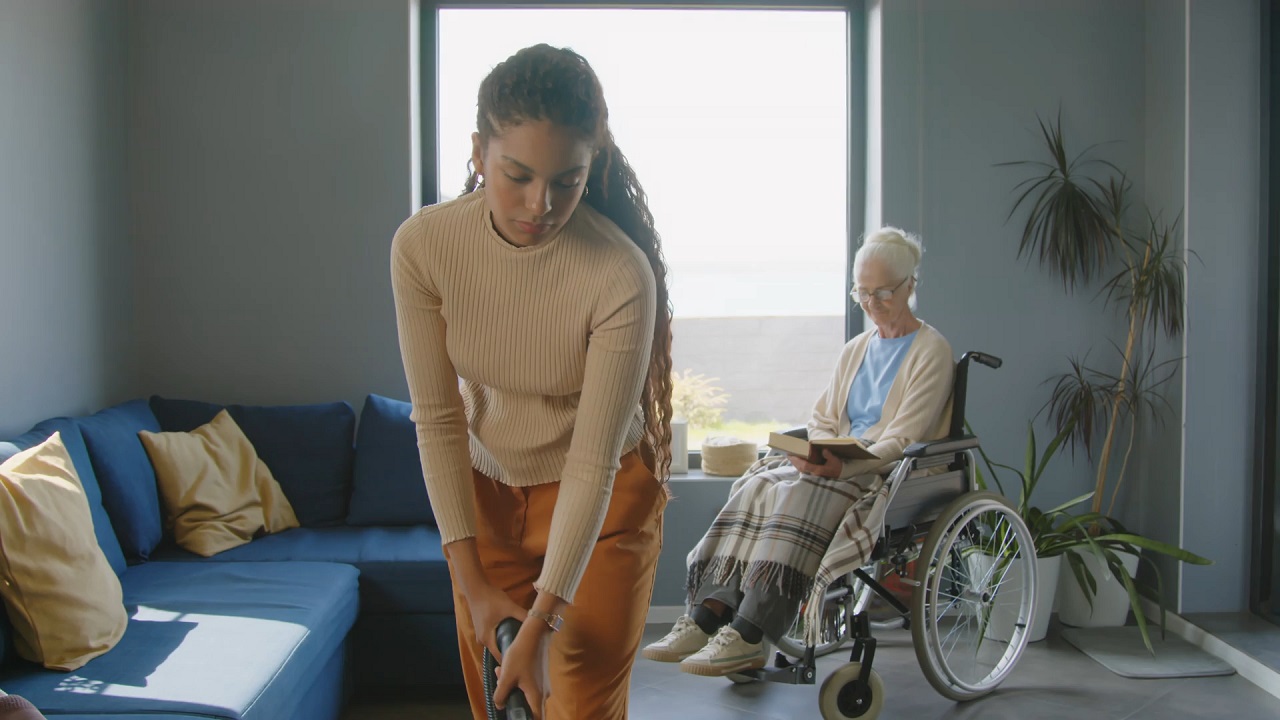
Private sitters step into your loved one’s daily routine and handle the activities that might have become too difficult. These can include:
- Preparing meals that meet dietary restrictions.
- Assisting with personal hygiene and grooming.
- Managing light housekeeping tasks, like tidying up or doing laundry.
- Ensuring medications are taken on time and correctly.
Emotional Support
It is not just about physical care. Many seniors struggle with feelings of isolation, especially if family members cannot visit often. A sitter can act as a companion, offering conversation, encouragement, and a listening ear. Over time, they may become someone your loved one truly looks forward to seeing.
Health Needs
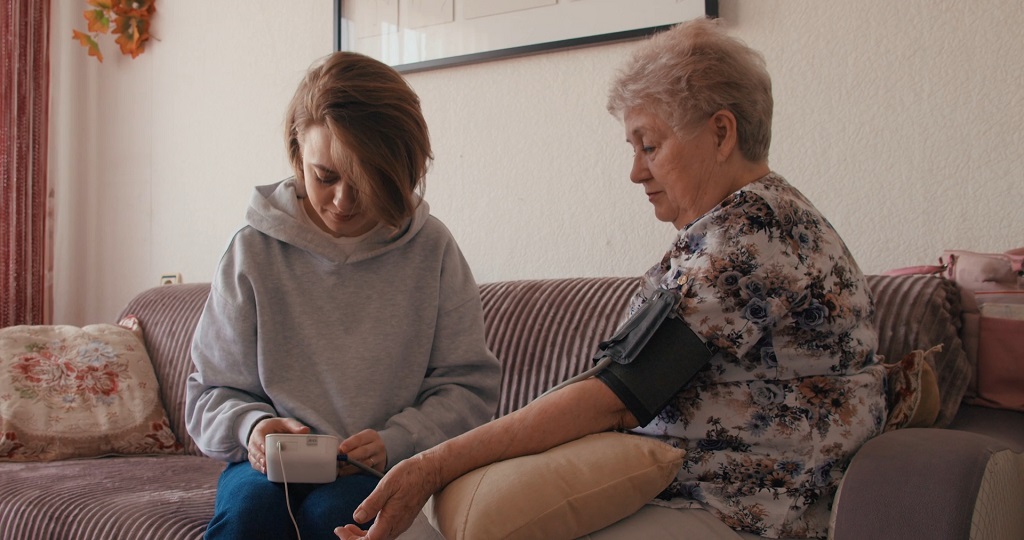
While sitters are not medical professionals, they can help monitor health in practical ways. This might include checking blood pressure, tracking symptoms, or noticing changes in behavior. In some cases, they might work alongside doctors or nurses to ensure your loved one’s needs are fully met.
How Much Will a Private Sitter Cost You?
When deciding to hire a private sitter, cost often becomes one of the first concerns. You might wonder, “Can I afford this kind of care?”
The truth is, the expense can vary widely depending on where you live, the type of care needed, and how often services are required.
Understanding these factors upfront can help you make the best decision for your family’s budget without sacrificing your loved one’s needs.
What to Expect in Hourly Rates
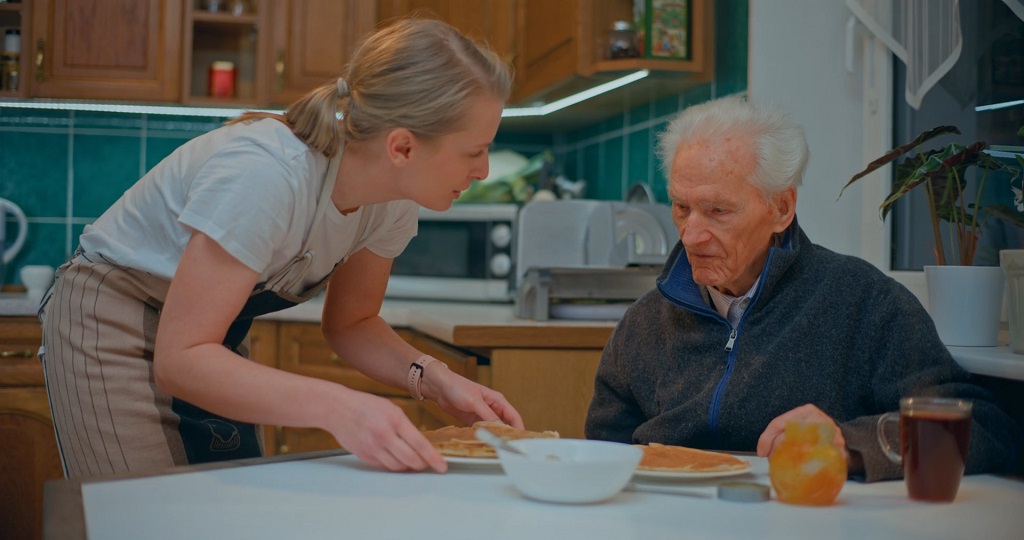
The average cost of a private sitter in the United States typically falls around $17 per hour. However, this range is not set in stone. Urban areas often see higher rates due to increased demand and a higher cost of living, while smaller towns may offer more affordable options.
Some sitters charge a flat daily rate, and the average is just under $100. Keep in mind, specialized services—like working with seniors who have dementia—can push these rates higher.
What Factors Affect the Cost?
Several things influence how much you will pay for a sitter:
- Experience: Sitters with certifications, training, or years of experience often charge more.
- Schedule: Evening, overnight, or weekend care usually comes with a higher rate.
- Tasks: The more responsibilities the sitter has (e.g., meal preparation, transportation, personal care), the higher the cost.
Ways to Save Money on Elderly Care
If these numbers feel overwhelming, there are strategies to manage costs:
- Volunteer Organizations: Some nonprofits offer free or low-cost services, especially for basic tasks like transportation or light housekeeping.
- Shared Care: Consider hiring a sitter for multiple seniors in the same neighborhood, splitting the costs with other families.
- Medicaid or Veterans’ Benefits: Depending on your loved one’s circumstances, they may qualify for financial assistance.
What Are the Advantages of Hiring a Private Sitter?
When you think about elderly care, private sitters bring a unique level of comfort and support that is hard to find elsewhere.
They offer a blend of professional care and personal attention that can make a real difference in the life of your loved one.
Whether you are balancing work, family, or your own health, knowing there is someone who genuinely cares about your loved one’s needs can feel like a weight lifted.
Personal Attention Makes All the Difference
One of the biggest advantages of hiring a private sitter is the individualized care they provide. Unlike care facilities, where attention is divided among many residents, a private sitter focuses entirely on your loved one. This creates a deeper connection and allows the sitter to truly understand their preferences, routines, and needs.
For example, a sitter can tailor daily activities based on your loved one’s energy levels or interests—whether it is spending the morning reading together, preparing their favorite meal, or simply having a meaningful conversation.
Flexibility That Fits Your Schedule
Private sitters offer a level of flexibility that other care options often cannot match. You can decide when and how often the sitter visits, whether it is for a few hours each week or full-day care. This means you can still spend time with your loved one when it works for you, while knowing they are taken care of when you are not available.
This flexibility also allows sitters to adapt to changing needs. If your loved one requires more care over time, you can adjust the schedule or responsibilities accordingly without making drastic changes to their routine.
Emotional and Social Benefits

Seniors often face loneliness, especially if they live alone or have limited mobility. A sitter provides companionship that can brighten their day and improve their mood. From sharing stories to playing games, these interactions foster a sense of connection that is essential for emotional well-being.
For families, hiring a sitter can also reduce feelings of guilt or stress. It reassures you that someone is there to care for your loved one when you cannot.
The Comfort of Staying at Home
A private sitter allows your loved one to remain in the comfort of their own home, surrounded by familiar belongings and memories. This can be especially important for seniors who find transitions to new environments overwhelming. Staying at home helps them maintain independence while still receiving the care they need.
What Challenges Come with Hiring a Private Sitter?
Hiring a private sitter for elderly care can feel like the perfect solution, but it is not without its challenges. While the benefits are significant, there are potential hurdles that families often face when bringing someone new into their loved one’s life. Being aware of these challenges helps you plan ahead and make informed decisions.
Trust Takes Time
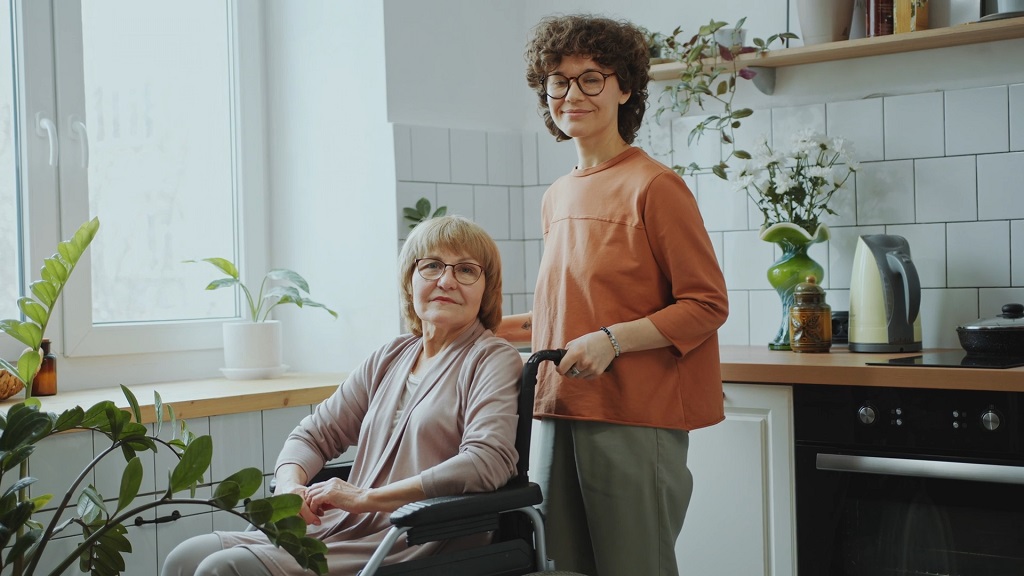
Letting a stranger into your home can be a big adjustment, especially when it comes to someone as vulnerable as an elderly family member. It is not just about handing over responsibilities—it is about feeling confident that your loved one is in safe, capable hands.
Seniors, in particular, may be hesitant to accept care from someone they do not know. They might feel uneasy about someone entering their personal space or worry about losing independence. Building trust requires patience and communication, but it is a process that cannot be rushed.
The Financial Burden
Private sitters can be expensive, especially for families needing long-term or daily care. Even at the lower end of the price range, costs add up quickly over weeks and months. For some families, this financial strain can make it difficult to maintain consistent care, forcing them to make tough choices about how to prioritize resources.
Looking into financial assistance programs or exploring part-time care might ease the burden, but the costs are still something families need to plan for carefully.
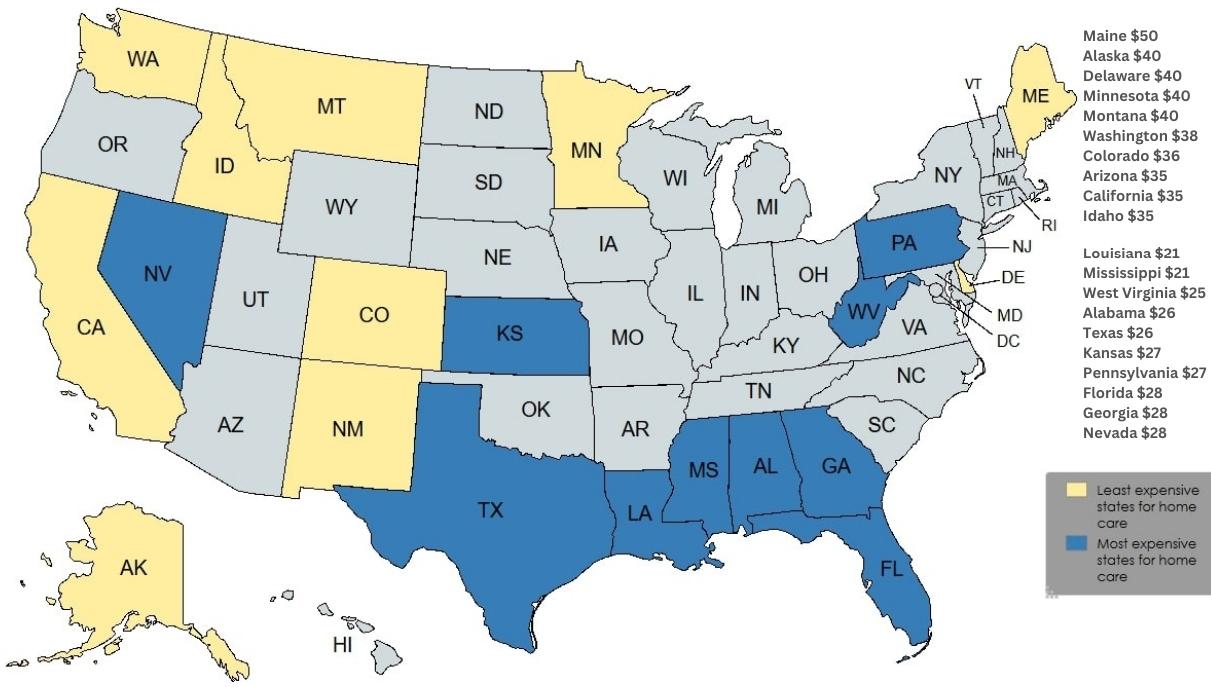
Finding the Right Match
Every family’s needs are unique, and not every sitter will be a perfect fit. It is common to go through multiple candidates before finding someone who truly connects with your loved one and meets your expectations. This process can take time and may feel frustrating, especially if your loved one is hesitant about the idea of a sitter in the first place.
Even after hiring, compatibility issues can arise. A sitter might have a different approach to care, or they might struggle to understand your loved one’s personality and preferences. Clear communication and trial periods are essential for finding the right match.
Limited Availability
The demand for elderly care is growing, but the supply of qualified sitters has not always kept pace. Depending on where you live, it might be challenging to find someone who is available during the times you need. Holidays, weekends, or emergencies can further complicate scheduling, leaving gaps in care that need to be addressed.
How Do You Find the Right Private Sitter for Your Family?
Hiring a private sitter for your loved one is a big decision, and finding the right person can feel like a daunting task. You are not just looking for someone who can check tasks off a list—you are searching for a caregiver who will build a genuine connection with your loved one while providing the level of care they need. It takes time, effort, and a little patience, but the result is worth it.
Start with a Clear Plan
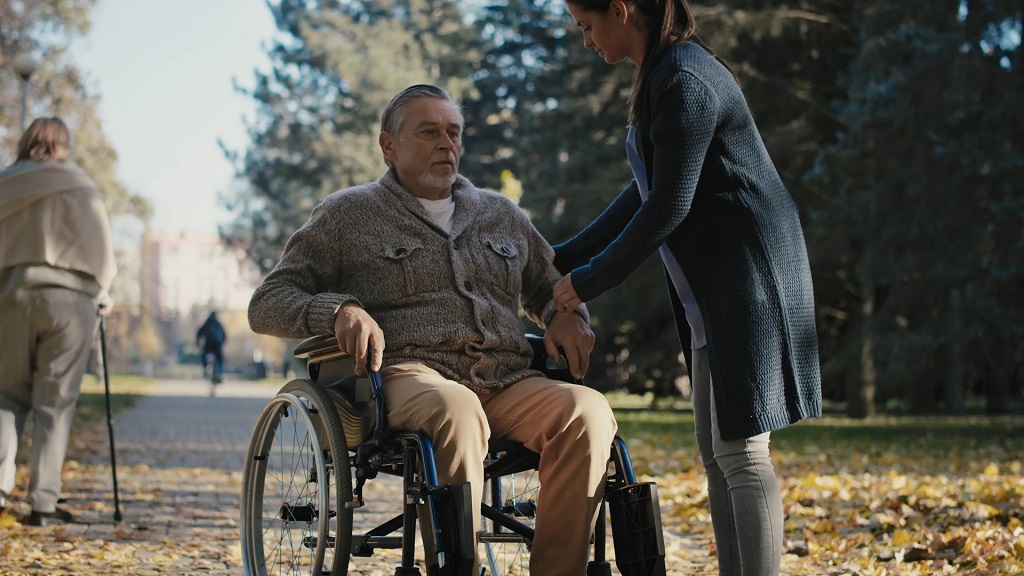
Before you begin your search, take some time to think about what your loved one needs most. Do they require help with physical tasks like dressing and bathing? Or is companionship and emotional support the priority? Understanding your needs will help you focus your search and avoid feeling overwhelmed by too many options.
Consider your budget as well. Knowing how much you can spend will narrow down choices and guide you toward realistic solutions, whether that is hiring a sitter part-time or exploring additional financial support programs.
What to Look for in a Private Sitter
Not all sitters are the same, and it is important to think about the qualities that matter most for your family:
- Reliability: Can they be counted on to show up on time and follow through with responsibilities?
- Patience: Are they calm and understanding, especially when working with seniors who may have physical or emotional challenges?
- Experience: Have they worked with elderly individuals before, and do they have relevant training or certifications?
- Good Communication Skills: Can they explain things clearly and keep you informed about your loved one’s care?
Steps to Find the Right Sitter
Once you know what you are looking for, take these steps to ensure you find the right person:
- Ask for Recommendations: Talk to friends, neighbors, or local caregiving organizations for referrals. Personal recommendations often lead to the best candidates.
- Search Online: Use reputable caregiving platforms or local job boards to find sitters in your area. Look for profiles with detailed experience and positive reviews.
- Interview Carefully: Ask about their past experience, values, and approach to caregiving. Make sure they align with your loved one’s needs and personality.
- Run Background Checks: Verify their credentials and look into their work history to ensure they are trustworthy.
Test the Waters
After narrowing down your options, it is helpful to arrange a trial period. Let the sitter spend time with your loved one for a few hours or a day. This gives both sides an opportunity to see how they interact and whether the arrangement feels right.
Pay attention to your loved one’s feedback. Even if they do not express it directly, their comfort level and reactions will tell you a lot about how well the sitter fits.
What Can You Do if a Sitter is Not Available?

Even the best sitter cannot be there all the time. Emergencies, schedule conflicts, or holidays can leave gaps in care, making it essential to have a plan in place for those moments. While this can feel stressful, being prepared ensures your loved one is still supported when their sitter is unavailable.
Use Family and Friends
Sometimes, the best solution is closer than you think. Reach out to other family members or close friends who may be able to step in temporarily. Even a few hours of help can make a big difference. Many people are willing to assist but might not know you need help until you ask.
Explore Backup Care Services
Some caregiving agencies offer backup services specifically for situations like this. These services provide on-call caregivers who can step in at short notice. While they may cost more than regular care, they are invaluable in emergencies.
Local community organizations may also have volunteers who can help with specific tasks, such as transportation or meal delivery, to fill in the gaps.
Rely on Technology
When in-person care is not possible, technology can bridge the gap. Devices like smart cameras or health monitoring apps allow you to check in on your loved one remotely.
Encourage Independence
If your loved one is capable, small steps to promote independence can help during brief periods without a sitter. This might include:
- Preparing easy-to-heat meals.
- Organizing medications in labeled containers.
- Ensuring their living space is safe and accessible.
How Can Technology Support Elderly Care at Home?
Technology has become an essential tool in modern caregiving, offering solutions that complement in-person care. While nothing replaces the human connection of a sitter, technology can provide extra layers of safety, convenience, and peace of mind when you cannot be there.
Monitoring Health and Safety

Smart devices designed for seniors can track vital signs, detect falls, and even send alerts in case of emergencies. Wearable devices like medical alert bracelets or smartwatches with health monitoring features keep you informed about your loved one’s well-being in real time.
If your loved one stops moving for an extended period, the app sends an automatic alert, providing reassurance even when you are miles away.
Staying Connected
Loneliness can have a significant impact on seniors’ health. Video calling platforms like Zoom or FaceTime allow family members to check in regularly, offering much-needed interaction. Many apps are designed specifically for seniors, with simplified interfaces that make staying in touch easy.
Managing Daily Tasks
Technology can also handle practical needs:
- Medication Reminders: Apps or devices that alert seniors to take their medications on time.
- Meal Delivery Services: Ordering groceries or pre-prepared meals online ensures your loved one has access to healthy food.
- Home Automation: Smart home devices like voice-activated assistants can control lights, thermostats, or even play music, making daily life more convenient.
FAQs
How Do You Handle Situations Where the Sitter Cancels Last Minute?
If your sitter cancels unexpectedly, having a backup plan is essential. You can use on-call caregiving services, contact local agencies for temporary coverage, or rely on technology like monitoring apps to ensure safety until care is arranged. Family or friends can also step in temporarily.
Are Sitters Allowed to Administer Medications?
Private sitters can assist with reminders and ensure medications are taken on time. However, unless they are licensed medical professionals, sitters cannot administer medications directly. Always confirm their qualifications if specific medical tasks are needed.
What Is the Difference Between a Sitter and a Home Health Aide?
While both provide care, a sitter focuses on non-medical tasks like companionship, housekeeping, and daily activities. A home health aide typically has medical training and can perform health-related tasks such as wound care or monitoring medical equipment.
Can Sitters Work Overnight?
Yes, many sitters offer overnight services. These arrangements often come at a higher cost due to the extended hours but can provide peace of mind for families needing constant care during the night.
Final Thoughts
Hiring a private sitter for an elderly loved one is a meaningful way to provide the care and attention they need. It allows your loved one to maintain a sense of independence while receiving personalized support for their daily routines. The decision to bring someone into their life can feel overwhelming, but with proper planning and the right approach, it becomes a manageable process.

